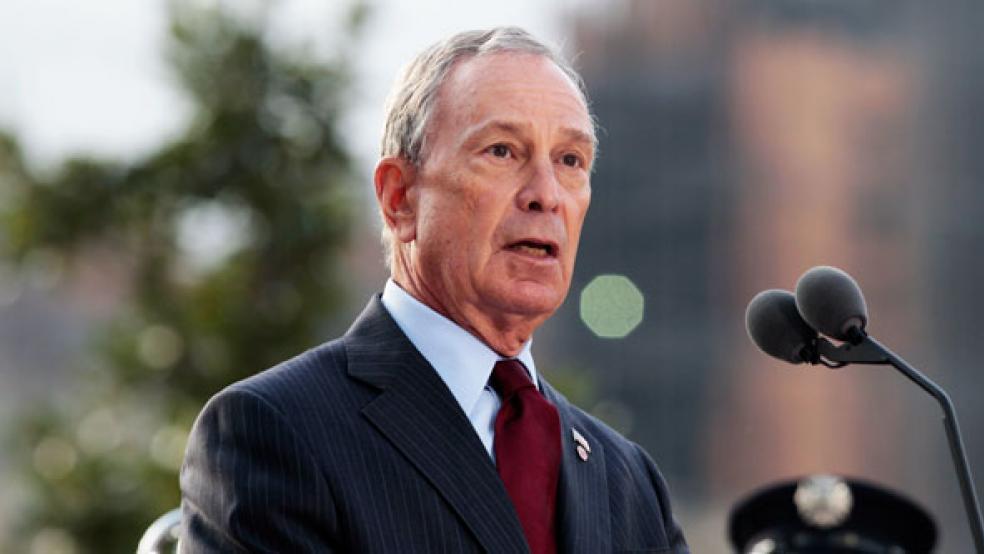Former New York Mayor Michael Bloomberg on Tuesday condemned Congress for allowing the United States to fall behind the rest of the world in terms of infrastructure development, accusing lawmakers of using short-term measures to do only the “bare minimum.” When it comes to transportation in particular, he said, “Congress is doing the bare minimum: Kicking the can down a pothole-filled road.”
Speaking at the Peter G. Peterson* Foundation’s 2015 Fiscal Summit, Bloomberg said that in terms of budgeting and spending, “Washington has consistently given us the worst of both worlds. No reform of entitlements that fuel our debt, and precious little investment that fuels our economy.”
Related: Why A New Age of Nuclear Energy Is About to Dawn
No issue better exemplifies that lack of investment, he said, than transportation infrastructure.
Referring to a recent train crash outside Philadelphia that killed eight people and injured hundreds, Bloomberg said, “It shouldn’t take a tragic Amtrak accident to put infrastructure at the top of the agenda and yet, even that didn’t do it. This week, the big debate in Congress is whether to patch the highway trust fund for 2 months or 6 months. Talk about setting the bar low.”
Infrastructure development in the U.S\ has historically been a bipartisan issue on which the federal government took a long view about the utility of investment, Bloomberg said. From the Transcontinental Railroad to the Hoover Dam to the interstate highway system, he said, leaders from both parties have been willing to support the expansion and improvement of infrastructure.
No longer, Bloomberg said.
Related: How $5.3 Trillion in Energy Subsidies Damage Economies, Environment
“The federal government has abdicated the leadership role it long played on infrastructure, and as a result, we’re losing a crucial part of our competitive edge in the global economy and losing out on economic growth that would generate the tax revenue we need to pay for everything else,” he said.
One need only travel overseas, Bloomberg said, to see that the U.S. is being left behind.
“Other countries are making these investments because they know that businesses will go to the cities that have the best and most extensive transit networks, the deepest, biggest ports, and the most modern and efficient airports,” he said. “I’ve never heard anyone disagree with that idea.”
The plainest example of Washington’s failure to address the issue of funding infrastructure is the gasoline tax, Bloomberg said. “The case for increasing the tax could not be any clearer. It has been 18.4 cents per gallon since 1993.”
Related: Restoring the Public’s Trust in Economists
That’s the longest period in its history that the tax has remained static, and the combination of inflation, more fuel efficient cars, and a plateau in the number of miles driven means that in real terms the tax takes in far less than it used to.
Meanwhile, he said, “Our roads and bridges and transit networks have gotten 22 years older.”
He added, “No CEO in America, and certainly no economist, would look at this investment model without cringing.”
Bloomberg was not optimistic about lawmakers at the federal level making the decisions necessary to bring U.S. infrastructure spending up to needed levels, but he did offer an alternative.
Related: McConnell Says TPA Will Counter Chinese Dominance
Pointing out that a number of states, faced with reduced federal funding, have found the political courage to increase their own gas taxes to fund infrastructure, he suggested repurposing the federal Highway Trust Fund by turning it into a matching program that would deliver money to the individual states based on the amount they themselves raise from a gasoline tax, with the condition that the money all be used to fund transportation infrastructure.
It’s not an ideal solution, he said, because transportation really needs to be coordinated at the federal level – one key state neglecting its own infrastructure can negate improvements made in a neighboring state, at least when it comes to travel by road.
However, he stressed, something needs to be done, and quickly.
“While we argue about ‘American exceptionalism,’ the rest of the world is passing us by,” he said.
*Pete Peterson also funds The Fiscal Times.
Top Reads from The Fiscal Times:





